












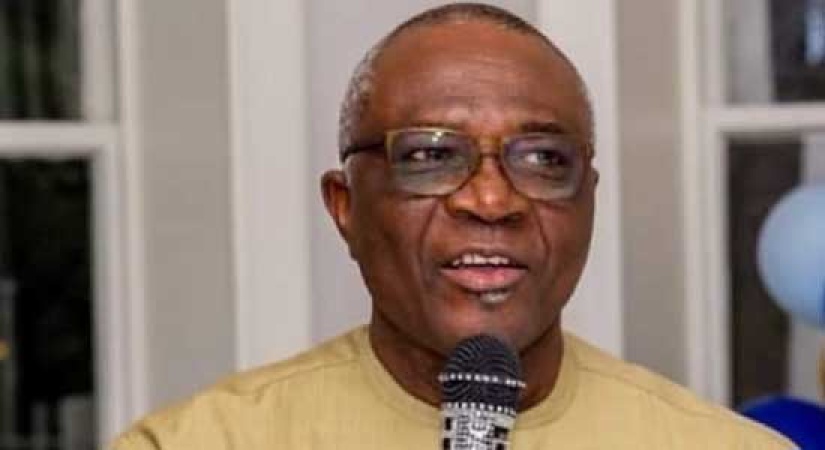



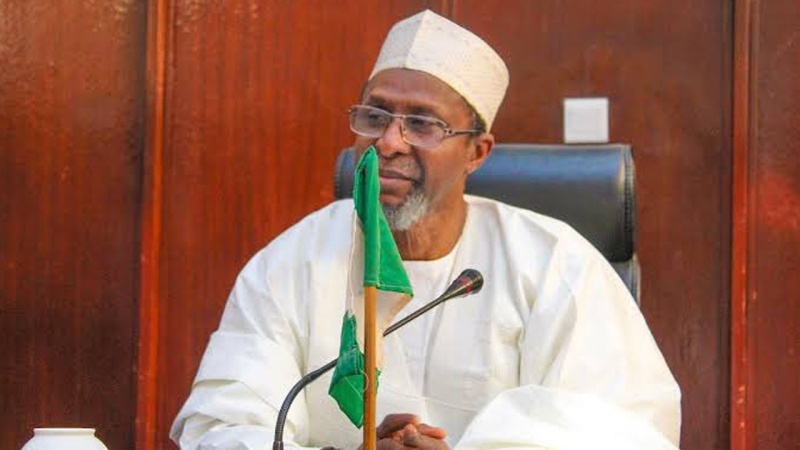


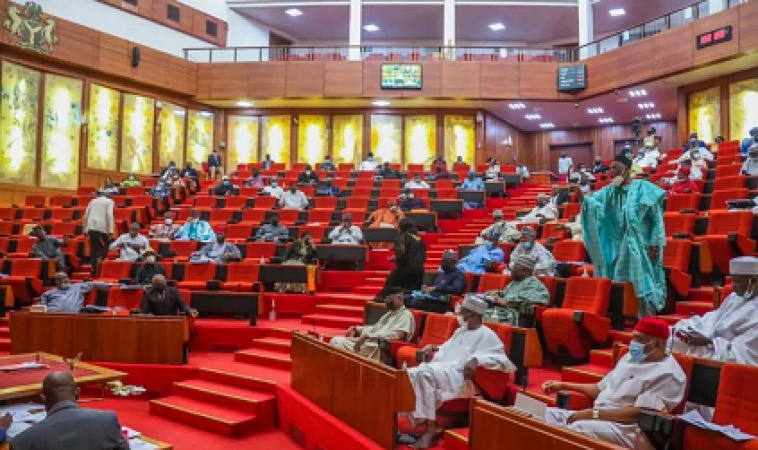


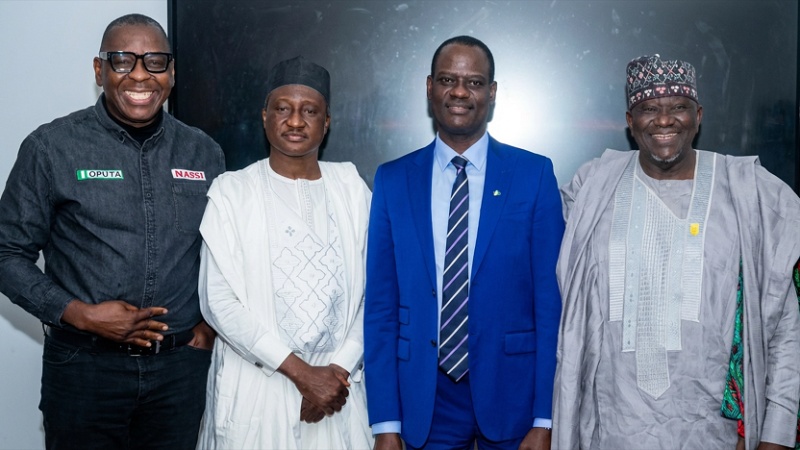
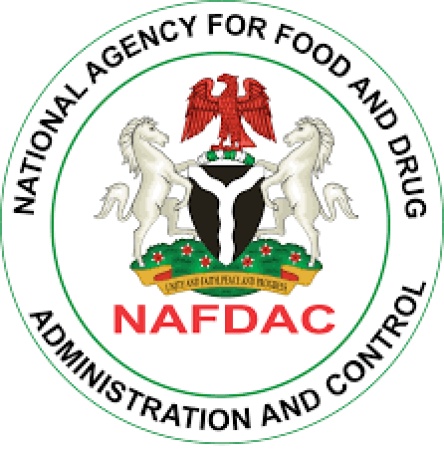

Loading banners


NEWS EXPRESS is Nigeria’s leading online newspaper. Published by Africa’s international award-winning journalist, Mr. Isaac Umunna, NEWS EXPRESS is Nigeria’s first truly professional online daily newspaper. It is published from Lagos, Nigeria’s economic and media hub, and has a provision for occasional special print editions. Thanks to our vast network of sources and dedicated team of professional journalists and contributors spread across Nigeria and overseas, NEWS EXPRESS has become synonymous with newsbreaks and exclusive stories from around the world.

A car being fuelled with petrol
Nigeria?s reliance on petrol imports has deepened despite the commissioning of the 650,000-barrel-per-day Dangote Refinery, as new data reveal that imported petrol accounted for 72.64 per cent of total national consumption in the last nine months.
This comes as many African countries race to build new refineries or complete the overhaul of existing facilities, a development that would rival Dangote Refinery and Nigeria?s ambitious plan to become the continent?s refining hub.
According to figures from the Federation Account Allocation Committee (FAAC), the country consumed 12.5 billion litres of petrol between October 2024 and July 2025, of which 9.08 billion litres were imported, while 3.5 billion litres came from domestic supply, mainly the Dangote Refinery.
The data showed that hopes of achieving energy self-sufficiency through local refining remain distant. In October 2024, for instance, Nigeria imported 40.43 million litres per day, translating to 1.253 billion litres that month, while Dangote Refinery supplied only 7.09 million litres daily, representing 14.9 per cent of the total. Similar patterns persisted in the subsequent months, though local supply briefly surged early in 2025 before sliding again amid operational disruptions.
January 2025, import dependence had dropped to 56.3 per cent, with Dangote supplying 592.1 million litres, its best performance so far. February and March maintained similar trends, with local supply hovering near 45 per cent.
However, production began to falter from May 2025, when domestic supply fell sharply to 472 million litres, leaving importers to cover nearly 72 per cent of national demand. By July, Dangote?s contribution stood at just 31.5 per cent, following a labour dispute that halted operations temporarily.
Despite being Africa?s largest oil producer, the country still struggles to supply its own refineries with adequate feedstock. Dangote Refinery, for example, imported nearly 20 per cent of its crude from the United States in 2024, underscoring the challenge of securing local crude under Nigeria?s current production constraints.
Despite the region?s push, stakeholders have insisted that unless crude availability and pipeline security are fixed, even the best refineries can?t solve the import problem.
Chairman of the African Energy Chamber, N. J. Ayuk, while decrying a $15.7 billion shortfall in energy infrastructure investment on the continent, warned that regulatory barriers further complicate the issues on the continent.
?You can send crude and LPG across borders, but an African holding an African passport can?t move freely,? Ayuk said. In response to halting import dependence, several African countries are accelerating refinery projects to reduce reliance on foreign fuel, a development that could make Nigerian refineries less profitable.
According to recent announcements, Ethiopia, Senegal, Angola, Mozambique, Djibouti, Cameroon, Ghana, South Africa and Uganda are all planning the return of their refineries or building new plants that could collectively add over one million barrels per day of refining capacity, potentially rivaling Nigeria?s Dangote and NNPC refineries.
In Ethiopia, the government is advancing plans to build the Gode refinery, a 70,000 barrels-per-day facility in partnership with China?s Golden Concord Group (GCL). The plant, located in the Ogaden Basin?s Hilala oil field, will process domestic crude and condensate, marking a significant step toward the country?s energy independence.
Neighbouring Senegal has unveiled plans to construct a second national refinery to complement its existing Soci?t? Africaine de Raffinage (SAR) facility. The new project, targeted for completion by 2029, will cost between $2 billion and $5 billion and aims to make Senegal self-sufficient in petroleum product supply.
In Angola, the Cabinda refinery is expected to come onstream in the second half of 2025, starting with 30,000 barrels per day and scaling up to 60,000 barrels in later phases. The country?s larger Sonaref project, planned for 425,000 barrels per day by 2027, is one of Africa?s most ambitious refinery ventures. Meanwhile, Uganda?s Hoima refinery, which recently secured an implementation agreement, is inching closer to construction, though its first phase is not expected before 2028.
These new projects join Ghana?s 45,000 barrels-per-day Tema refinery, which commenced operations in 2024, and Egypt?s Midor expansion, which boosted capacity from 100,000 to 160,000 barrels per day. Combined, they represent Africa?s most determined push toward regional refining independence in decades.
While some countries are building new plants, others are battling to restore dormant or damaged facilities. In Cameroon, work is underway to reconstruct and restart the Limbe refinery, which has been offline since 2019 following a devastating fire. Ghana?s Tema refinery, long plagued by operational issues, is undergoing full maintenance and is expected to restart shortly.
In Libya, the Ras Lanuf refinery (220,000 barrels per day) remains pending restart under the National Oil Corporation, while in South Africa, the Engen refinery is being converted after a fire, and Sapref, the country?s largest refinery, remains mothballed. Elsewhere, the Ivory Coast has started constructing a new diesel unit to expand domestic and regional supply.
Collectively, these projects highlight Africa?s dual refining reality, a mix of ambitious greenfield construction and painstaking recovery from years of neglect.
The African Refiners and Distributors Association (ARDA) estimates that Africa needs at least six refineries of Dangote?s scale to meet its growing demand and achieve self-sufficiency. ARDA?s Executive Secretary, Anibor Kragha, recently warned that despite ongoing projects, the continent?s refining deficit remains dangerously wide.
He noted that unclear regulatory frameworks, financing bottlenecks, and energy transition pressure have slowed investment, leaving many countries dependent on imported refined products. ?Africa?s vulnerability to fuel price shocks will persist until refining investment matches consumption growth,? he cautioned.
Indeed, with population growth and economic expansion driving consumption higher, the continent?s refining shortfall has become both an economic and security concern.
According to the Africa Energy Chamber (AEC), at current project rates, Africa may still be importing petroleum products by 2050, as greenfield developments remain limited due to scarce funding and competition from imported fuels.
The Organisation of Petroleum Exporting Countries (OPEC) has painted an even grimmer picture. In its latest outlook, the organization estimates that Africa faces a $100 billion refining investment gap over the next 25 years. About $40 billion will be required by 2030 for new refineries, while an additional $60 billion will be needed for upgrades and expansions beyond that year.
OPEC projects that domestic oil consumption across Africa will grow from 1.8 million barrels per day in 2024 to 4.5 million barrels per day by 2050. This surge will reduce the continent?s crude exports by over one million barrels daily, potentially reshaping global trade flows, particularly affecting European refiners that rely heavily on African crude. (The Guardian)